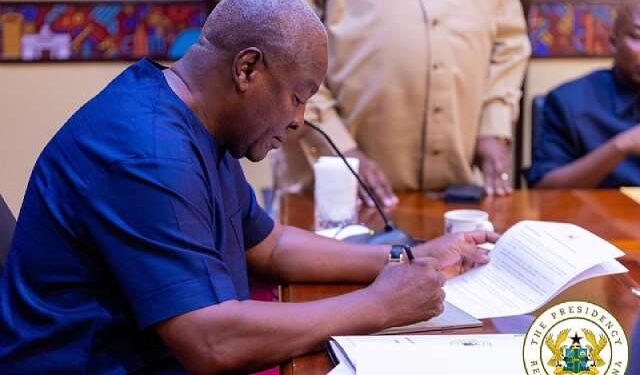Anti-corruption advocate and Co-Chair of the Citizens’ Movement Against Corruption, Edem Senanu, has called for the establishment of an independent body with the mandate to properly vet and verify asset declarations of public office holders before they assume office.
Speaking on Prime News on ABC News GH on Monday, April 14, 2025, Mr. Senanu emphasized that the current asset declaration process lacks the rigour necessary to detect hidden or misrepresented assets, and fails to act as a true deterrent to corruption.
“There is a lot on the Attorney General already,” Senanu said, “and adding the task of doing due diligence on declared assets—that is, investigating and making sure nothing is hidden—is not traditionally part of their role… and I think it is a valid point.”
Senanu’s remarks add to a growing national conversation surrounding Ghana’s asset declaration framework, sparked by renewed calls for reform from high-profile figures including former Electoral Commission Chairperson Charlotte Osei and former Auditor-General Daniel Yaw Domelevo.
Senanu suggested that the Commission on Human Rights and Administrative Justice (CHRAJ) could be better suited for the task, given its mandate in administrative justice.
“The issue of sending it to CHRAJ is because they have the administrative justice [mandate]… so it makes some sense that they take the responsibility.”
Citing Article 286 of the 1992 Constitution, which stipulates that public office holders must declare their assets before taking office, Senanu questioned the effectiveness of current procedures.
“Can we have a different body that has the capacity to do the due diligence and clear people… just to satisfy this before they get into office? I think it is legitimate and a fair proposal to make,” he argued.
Senanu also commented on the President’s recent directive requiring all government appointees to declare their assets by March 31, 2025, though he noted that there has been no public update on compliance.
“I think it is important that they keep documentation, because it is a reflection of the President’s commitment to the people—so that the Presidency is in a position to report this,” he added.
Background: A Broken System?
Senanu’s concerns echo those of Charlotte Osei, who recently urged a review of the asset declaration regime at a Constitution Review Committee stakeholder engagement, following a damning report by CDD-Ghana. The report revealed that winning elections in Ghana now demands an estimated $150 million for presidential campaigns and GHS 10 million for parliamentary races—figures that have raised alarms over the integrity of Ghana’s democracy and the influence of money in politics.
“Asset declaration is a critical key for fighting corruption with public office holders,” Osei remarked.
Similarly, former Auditor-General Daniel Domelevo has been vocal about the ineffectiveness of the current regime. He recalled how, prior to his reforms in 2016, public officials submitted sealed envelopes marked ‘asset declaration’ that no institution had the authority to open, undermining transparency and accountability.
Domelevo advocated for transferring the mandate from the Auditor-General’s office to CHRAJ or a specialized anti-corruption agency, calling for pre-office declaration requirements, the rejection of false or incomplete declarations, and the creation of a dedicated constitutional chapter on corruption.
As public demand for reform intensifies, Senanu’s intervention adds further momentum to the push for a robust, enforceable, and transparent asset declaration system—one that ensures accountability not just in form, but in substance.
By Ruth Sekyi

































